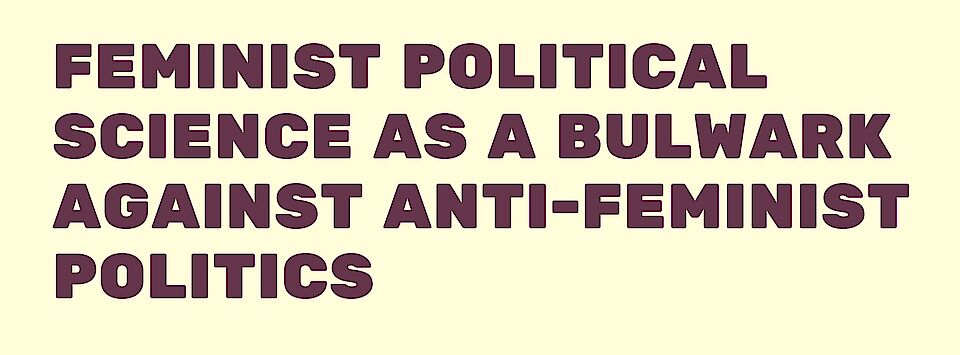Kick off Event for Gender & Political Science Working Group 18/11/22

Join the roundtable discussion
Tuesday, 18 November 2022
6-7.30 pm
University of Basel
Alte Universität
Rheinsprung 9
Hörsaal 101
Flyer
Call for joining the new working group on
The roundtable is open to everyone, register by November 11 via email to Leandra Bias & Elizabeth Mesok
Discussants:
Prof. Elisabeth Prügl, Professor, Graduate Institute of International and Development Studies
Dr. Stefanie Boulila, Lecture, Lucerne University of Applied Sciences and Arts
Dr. Leandra Bias, Postdoctoral Fellow, University of Bern
Dr. Elizabeth Mesok, SNF PRIMA fellow, University of Basel
The Working Group Gender and Political Science is intended to create a scientific community and foster academic exchange to increase the visibility of feminist approaches to political science and politics writ large and to accelerate its progress and recognition. The launch event will offer an opportunity to not only discuss a timely topic, but also to meet each other and begin to establish our strong and growing network in academia and beyond.
We accept new members on a rolling basis
The past decade we have witnessed the strengthening of a transnational antifeminist momentum which spans from regimes to parties to social movements. Victor Orban, Jair Bolsonaro, Vladimir Putin and Donald Trump are just the tip of an iceberg of men in power, whom are not only openly misogynist, but also enact antifeminist policies, internally and externally. In so doing they appeal to and find support in right-wing parties, conservative actors like the Catholic Church and social movements as for example the French anti-abortion march “La manif pour tous ”. The epitome of this is the World Congress of Families that has been fundamental in channeling funding and strategies through a widely spanned transnational web.
While it was already challenging to attract attention to the danger of anti-feminist politics, it has become even more difficult with the escalation of the Russian aggression against Ukraine in February 2022. Militarisation and the retraditionalisation that comes with it have permeated public discourses and policies in Europe and beyond. In this constellation it becomes difficult to critically examine the state of gender equality in a country like Poland for example which suddenly stands as an unquestionable fortress against Russian aggression. It equally becomes difficult to hold on to ideals of feminist peace and security and to advocate for investment in the care economy when states are clamoring to jump aboard – perhaps more now than ever – the armament wagon.
It is particularly urgent that feminist political scientists work to better understand the different roles, manifestations and consequences of antifeminism. This urgency is one salient reason we have chosen now to launch our Working Group, Gender and Political Science, established within the Swiss Association for Gender Studies, which we will kick-off with a roundtable on this topic.
Quick Links
Social Media
